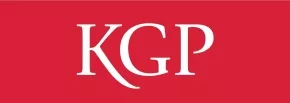- within Finance and Banking topic(s)
- in United States
- with readers working within the Business & Consumer Services, Media & Information and Retail & Leisure industries
- within Finance and Banking topic(s)
- in United States
- with readers working within the Media & Information industries
Stablecoins, digital assets designed to maintain a stable value by pegging to a fiat currency or a basket of assets, have gained prominence in the global financial ecosystem. Recognising their potential and the associated risks, the Monetary Authority of Singapore (MAS) has established a comprehensive regulatory framework to ensure the stability and reliability of stablecoins issued within its jurisdiction.
Scope of the Framework
The MAS's regulatory framework specifically targets single-currency stablecoins (SCS) that are:
- Pegged to the Singapore Dollar (SGD) or any Group of Ten (G10) currencies.
- Issued within Singapore.
Stablecoins that do not meet these criteria, such as those pegged to non-G10 currencies or multi-currency baskets, fall outside the scope of this framework.
Key Regulatory Requirements
To promote a high degree of value stability and protect users, the framework imposes several requirements on SCS issuers:
- Value Stability: Issuers must back their SCS with high-quality, liquid assets equivalent to at least 100% of the par value of the outstanding SCS in circulation. These reserve assets should be denominated in the same currency as the pegged SCS to mitigate currency risk.
- Capital Requirements: Issuers are required to maintain a minimum base capital of S$1 million or 50% of annual operating expenses, whichever is higher. This ensures that issuers have sufficient financial resources to operate and manage risks effectively.
- Redemption at Par: Issuers must allow users to redeem their SCS at par value within five business days from a redemption request. This provision ensures that holders can convert their stablecoins back to fiat currency promptly and at full value.
- Disclosure Requirements: Issuers are mandated to provide clear and accessible disclosures to users. This includes information about the SCS's value stabilisation mechanism, the rights of SCS holders, and the audit results of reserve assets. Such transparency enables users to make informed decisions regarding their holdings.
Recognition as "MAS-Regulated Stablecoins"
Stablecoins that meet all regulatory requirements can be labelled as "MAS-regulated stablecoins." This designation serves as a mark of trust and compliance, helping users distinguish between regulated and unregulated stablecoins in the market.
Exemptions and Future Considerations
The framework provides certain exemptions:
- Non-Bank Issuers with Low Circulation: Non-bank SCS issuers with stablecoins in circulation not exceeding S$5 million are exempted from the requirements. This exemption acknowledges the limited risk posed by smaller issuers.
- Tokenised Bank Liabilities: Currently, tokenised bank liabilities are not subject to the SCS framework. However, MAS reserves the right to impose additional requirements on such tokens in the future as necessary.
Alignment with International Standards
The MAS's framework aligns with global regulatory trends and standards set by international bodies. By focusing on reserve management, capital adequacy, redemption rights, and transparency, the framework seeks to mitigate risks associated with stablecoins, such as financial instability and consumer protection concerns.
Implications for the Digital Asset Ecosystem
The establishment of this regulatory framework underscores Singapore's commitment to fostering a secure and innovative digital asset environment. By providing clear guidelines and standards, MAS aims to:
- Enhance Trust: Regulated stablecoins offer users assurance regarding their value stability and redemption rights, fostering greater confidence in digital payment methods.
- Promote Adoption: A robust regulatory environment encourages both individuals and businesses to adopt stablecoins for transactions, investments, and other financial activities.
- Support Innovation: Clear regulations provide a foundation for fintech companies to develop new products and services, knowing the compliance requirements and expectations.
Conclusion
Singapore's stablecoin regulatory framework represents a balanced approach to innovation and risk management. By setting stringent yet fair requirements for stablecoin issuers, MAS aims to harness the benefits of digital assets while safeguarding the financial system and its participants. As the digital asset landscape evolves, such proactive regulatory measures position Singapore as a leading hub for fintech innovation and responsible digital finance.
Sources
The content of this article is intended to provide a general guide to the subject matter. Specialist advice should be sought about your specific circumstances.
[View Source]

